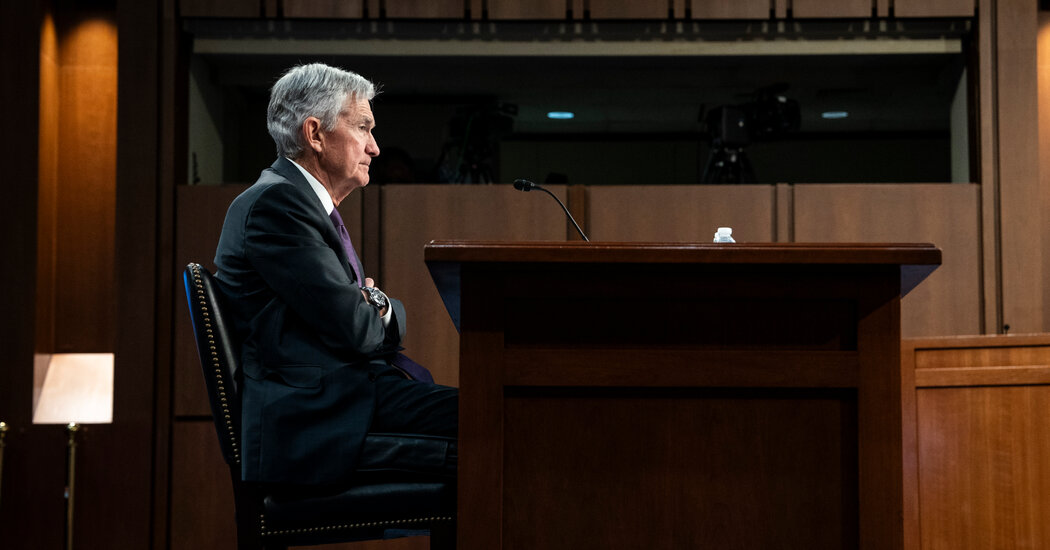Republicans in Congress cannot use an obscure legislative maneuver to stop California’s ban on the sale of new gasoline-powered cars by 2035, the Senate parliamentarian ruled on Friday.
The decision dealt a blow to efforts by the Trump administration to quickly kill policies that promote electric vehicles.
California had received a federal waiver under the 1970 Clean Air Act from the Biden administration to impose a stricter automobile emissions standard than the one set by the federal government. Under that waiver, it enacted a plan to require all new cars sold in the state by 2035 be free of emissions of greenhouse gases like carbon dioxide, the primary contributor to climate change.
It’s one of the most ambitious climate policies in the United States, designed to shift the auto industry toward electric cars. That has made it a top target for elimination by the Trump administration.
According to three Senate Democrats, however, the parliamentarian on Friday said the waiver granted to California was not subject to the Congressional Review Act, which permits lawmakers to reverse recently-adopted regulations with a simple majority vote.
California’s two Democratic senators, Alex Padilla and Adam Schiff, and Senator Sheldon Whitehouse of Rhode Island, the top Democrat on the Senate Environment and Public Works Committee, announced the decision but declined to release the text of the ruling.
All three described it as a victory for climate policies.
“In passing the Clean Air Act on an overwhelmingly bipartisan basis, Congress explicitly granted California the ability to set more stringent vehicle emissions standards to protect public health from California’s unique air quality challenges,” Mr. Padilla said.
“This latest stunt from Trump’s E.P.A. was a clearly bogus attempt to undercut California’s climate leadership, and it failed,” he said.
The Trump administration submitted the automobile waiver to Congress along with two other California waivers approved by the Environmental Protection Agency last year. One requires that half of all new heavy-duty vehicles sold in the state be electric by 2035 and the other places limits on nitrogen dioxide and particulate matter emissions from cars and trucks.
The parliamentarian, Elizabeth MacDonough, is a civil servant who acts as the arbiter and enforcer of the Senate’s rules. She decided that the rules would not allow Republicans to fast-track the repeal of the waiver.
Mr. Schiff noted that the parliamentarian is “nonpartisan and independent,” and added that California “has been the gold standard for fighting harmful air pollution, and today’s ruling allows that fight to continue.”
In a statement, California Governor Gavin Newsom said, “For decades, California has used the authority given to us by Congress and President Nixon to set world-leading clean car and truck standards that promote innovation, grow our economy, and protect our communities from smoggy skies. We’re glad to see the Senate reject the Trump Administration’s unprecedented effort to bend the law by trying to repeal our standards through the Congressional Review Act.”
The Clean Air Act specifies that California can be allowed to enact tougher clean air standards than those set by the federal government because, historically, it has had the most polluted air in the nation. Federal law also allows other states to adopt California’s standards as their own, under certain circumstances.
As the fifth-biggest economy in the world, California exerts significant market influence. Eleven other states have said they will follow California’s lead and ban the sale of new gas-powered cars by 2035. Together, they make up nearly half the United States’ auto market.
Republicans had made the case that because of California’s economic clout, the auto waiver was setting a de facto national policy that should be treated as a regulation. But two decisions by the Government Accountability Office, the watchdog arm of Congress, found otherwise. California has received hundreds of waivers over the years, and none have been presented to Congress for a vote.
Senator Shelley Moore Capito, Republican of West Virginia who has led the effort to repeal the California waiver, did not immediately respond to a request for comment. A spokeswoman for Senator John Thune, the majority leader, also did not respond to a request.
Thomas J. Pyle, president of the American Energy Alliance, which supports the fossil fuel industry, maintained that lawmakers have the power to consider the waiver “regardless of what the parliamentarian thinks.” Mr. Pyle said the ruling “shouldn’t stop the Republicans from moving forward. We fully expect them to do so and look forward to the vote.”
Lawmakers have bypassed the Senate parliamentarian before. In fact, Republicans indicated this week that they may try to work around a ruling in order to pass a separate budget and tax bill through the chamber.
The House could still vote to overturn the waivers and put pressure on the Senate to act. This week Republican lawmakers led by Representative Kevin Kiley of California introduced resolutions to overturn California’s three waivers. They don’t have much time to act, though. The law gives Congress 60 days from the day a rule goes into effect to pass a resolution invalidating it, and the Biden administration approved the waiver in December.
“The Newsom Administration’s irrational plan to ban gas-powered cars and trucks is an affront to the freedom of Californians and an economic burden to the whole country,” Mr. Kiley said in a statement.
If Republicans in the Senate chose to adhere to the parliamentarian’s decision, the options for quickly killing the California policy are limited. Lee Zeldin, the administrator of the E. P.A, could withdraw the waiver but that would require months of public notice and comment.
Molly Vaseliou, a spokeswoman for the E.P.A., did not comment on the agency’s plans but criticized the California waiver as imposing “onerous, costly and unnecessary regulations.” She said when the agency transmitted the rule to Congress, the E.P.A. “fulfilled its statutory obligations.”
Laurel Rosenhall contributed reporting from California.
#Republican #Plan #Kill #Californias #E.V #Policies #Hits #Senate #Snag










